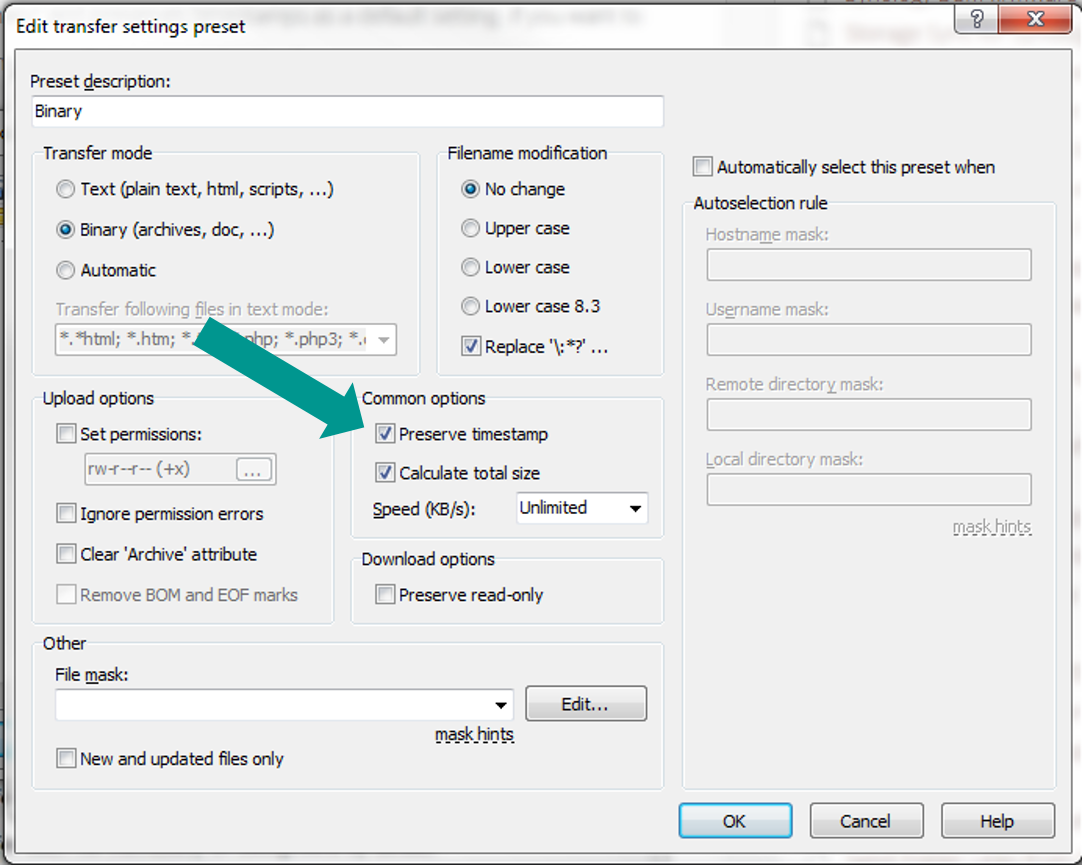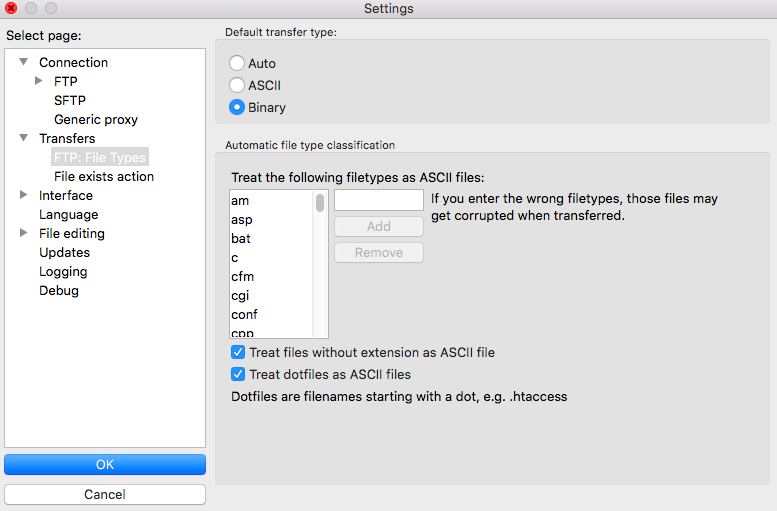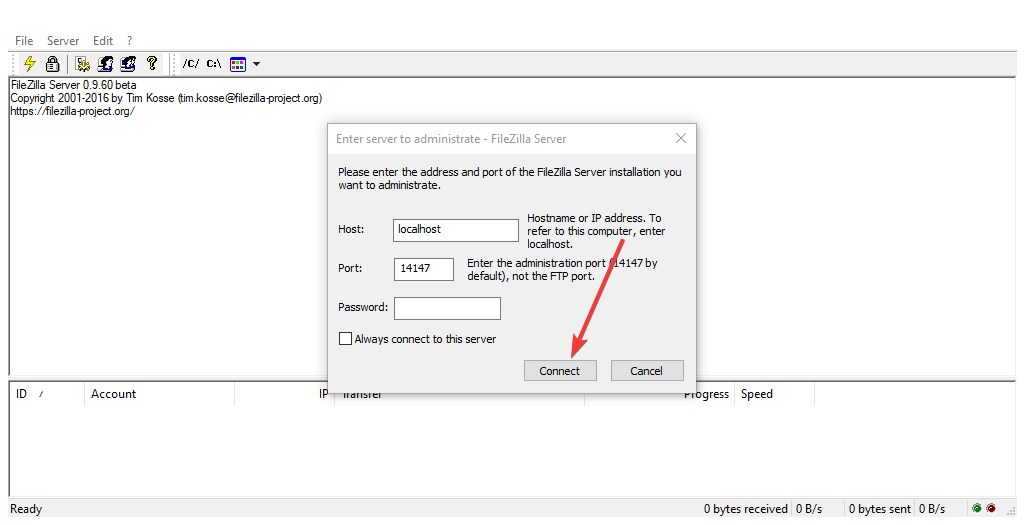

Return the welcome message sent by the server in reply to the initialĬonnection. Raises an auditing event nnect with arguments self, host, port.Ĭhanged in version 3.3: source_address parameter was added. Source_address is a 2-tuple (host, port) for the socket to bind to as If no timeout is passed, the global default timeout The optional timeout parameter specifies a timeout in seconds for theĬonnection attempt. All other methods can only be used after a connection has been

Instance it should not be called at all if a host was given when the instance This function should be called only once for each It is rarely needed to specify aĭifferent port number. Specified by the FTP protocol specification. connect ( host = '', port = 0, timeout = None, source_address = None ) ¶Ĭonnect to the given host and port. A value of 2 or higher produces the maximum amount ofĭebugging output, logging each line sent and received on the control connection. A value ofġ produces a moderate amount of debugging output, generally a single line The default, 0, produces no debugging output. These are named for the command which is usedįollowed by lines for the text version or binary for the binary version.įTP instances have the following methods: FTP. Several methods are available in two flavors: one for handling text files andĪnother for binary files. Typically used by FTP clients to load user authentication information This set includes theįour exceptions listed above as well as OSError and EOFError. Opposed to programming errors made by the caller). Instances may raise as a result of problems with the FTP connection (as The set of all exceptions (as a tuple) that methods of FTP The response specifications of the File Transfer Protocol, i.e. error_proto ¶Įxception raised when a reply is received from the server that does not fit
Go ftp try changing to passive mode code#
error_perm ¶Įxception raised when an error code signifying a permanent error (responseĬodes in the range 500–599) is received.

error_temp ¶Įxception raised when an error code signifying a temporary error (responseĬodes in the range 400–499) is received. error_reply ¶Įxception raised when an unexpected reply is received from the server. prot_p () '200 Data protection level set to "private"' > ftps. login () '230 Anonymous user logged in' > ftps. Keyfile and certfile are a legacy alternative to context – theyĬan point to PEM-formatted private key and certificate chain files Please read Security considerations for best practices. Options, certificates and private keys into a single (potentially Is a ssl.SSLContext object which allows bundling SSL configuration Securing the data connection requires the user toĮxplicitly ask for it by calling the prot_p() method. FTP_TLS ( host = '', user = '', passwd = '', acct = '', keyfile = None, certfile = None, context = None, timeout = None, source_address = None, *, encoding = 'utf-8' ) ¶Ī FTP subclass which adds TLS support to FTP as described inĬonnect as usual to port 21 implicitly securing the FTP control connectionīefore authenticating. The encoding parameter was added, and the default was changed from ValueError to prevent the creation of a non-blocking socket. The FTP class supports the with statement, e.g.:Ĭhanged in version 3.9: If the timeout parameter is set to be zero, it will raise a Specifies the encoding for directories and filenames. To bind to as its source address before connecting. source_address is a 2-tuple (host, port) for the socket Parameter specifies a timeout in seconds for blocking operations like theĬonnection attempt (if is not specified, the global default timeout setting The method call login(user, passwd, acct) is made (where passwd andĪcct default to the empty string when not given). FTP ( host = '', user = '', passwd = '', acct = '', timeout = None, source_address = None, *, encoding = 'utf-8' ) ¶ The module defines the following items: class ftplib. cwd ( 'debian' ) # change into "debian" directory '250 Directory successfully changed.' > ftp. login () # user anonymous, passwd '230 Login successful.' > ftp. from ftplib import FTP > ftp = FTP ( 'ftp.us.' ) # connect to host, default port > ftp.


 0 kommentar(er)
0 kommentar(er)
